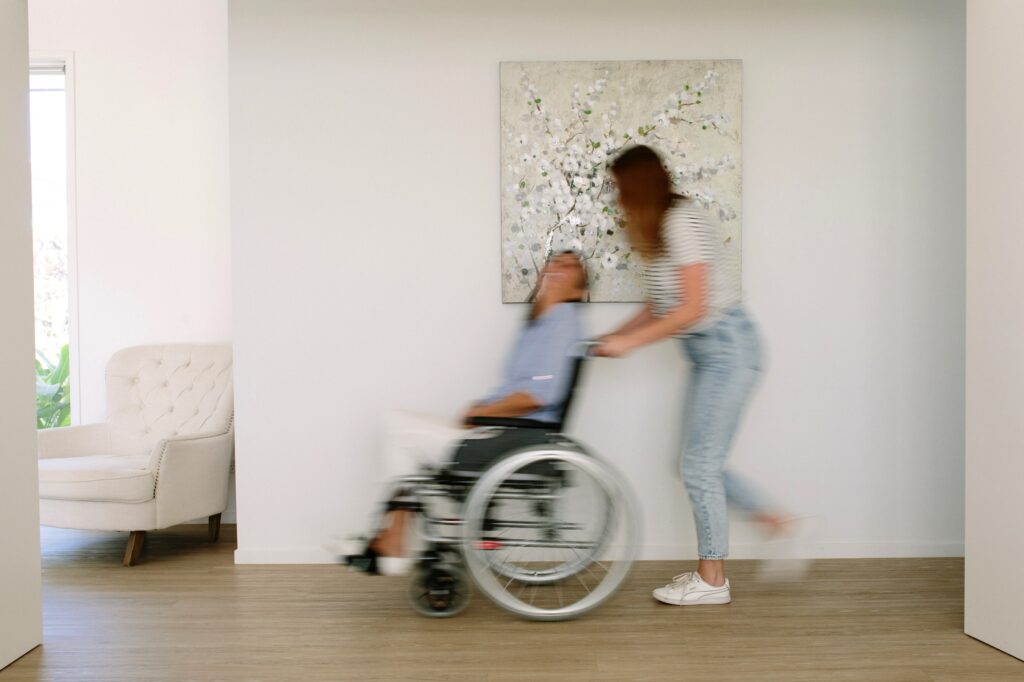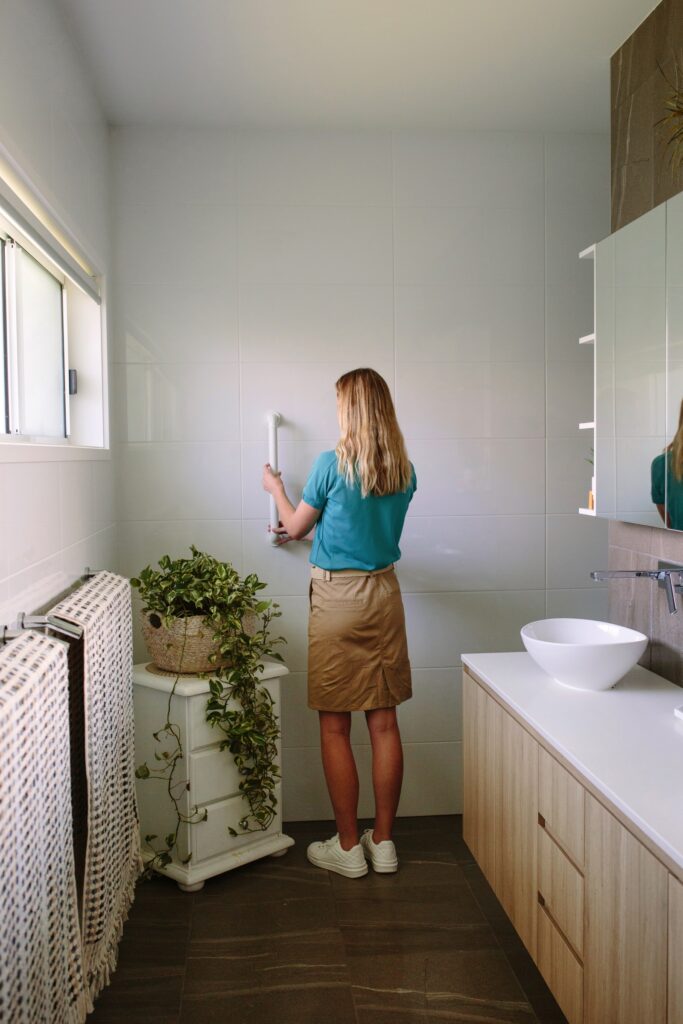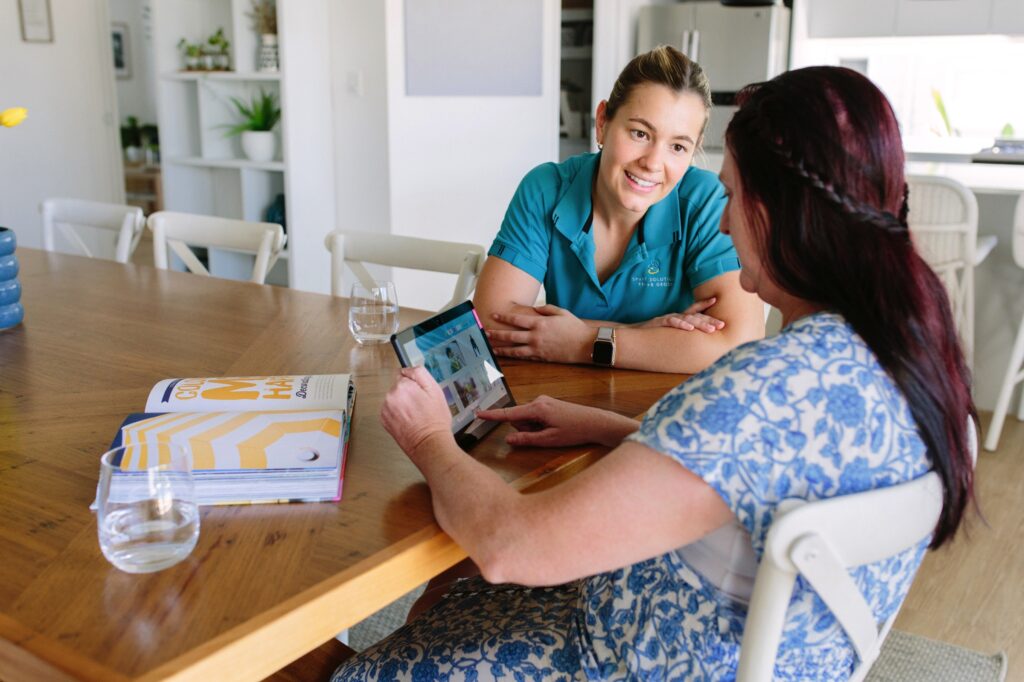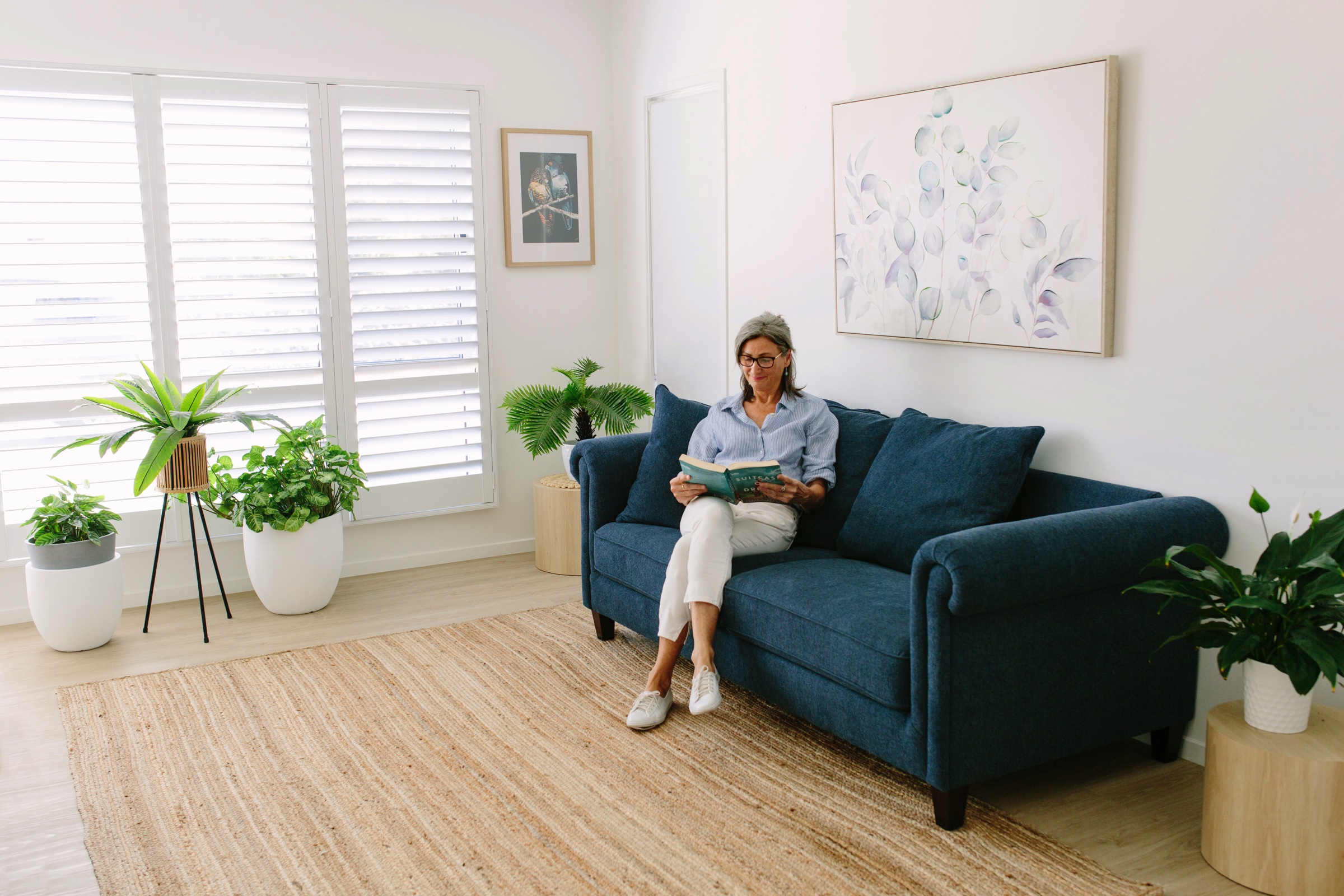Maintain your health, independence and wellbeing
In line with the new Aged Care Act and the strengthened Quality and Safey Standards, SSRG will be continuing to offer its comprehensive suite of clinical services to clients and care partners after 1st November 2025 under the new Support at Home Program (previously known as Home Care Packages).
SAH is based on a re-ablement, wellness and restorative model of care.
The essential principles include a commitment to:
- Person centred care
- Goal directed interventions
- Optimising function
- Reducing long term service dependence
SAH will provide Ongoing Care and Short Term Care including:
Ongoing Care: Level 1 – 8
Short Term Pathways: End of Life Pathway, Restorative Care Pathway, AT/HM pathway

SSRG has always had a commitment to older Australians and will continue to deliver services in line with a strong focus on supporting independence, health, wellbeing, safety, strength, mobility and connection.
Access to a range of clinical services will continue within the new model the including:
Exercise Physiology: fitness and activity assessments, lifestyle and behaviour modification programs,
Physical retraining for social and leisure pursuits
Occupational Therapy: functional assessment, skill building, task modification, falls prevention, assistive technology scripting and environmental modifications
Physiotherapy: mobility assessments, falls prevention, balance and gait retraining, strengthening, endurance and flexibility programs
Speech Pathology: swallow and communication assessments, safe eating plans, communication programs and socials skills training
Dietetics: diet and nutrition assessments, healthy eating plans for weight loss or weight gain, condition specific advice to promote health
Social Work: support for navigation complex situations, systems and personal circumstances
Ongoing Care Pathway
Within the Ongoing Care Pathways (levels 1 -8) clients are assessed by My Aged Care and deemed eligible for a level of support.
The service list available falls into a number of categories includes:
Clinical Care
Allied health, nursing care, care management
Independence
Personal care, social support and community engagement, diversional therapy and other supports, respite, transport, assistive technology and home modifications
Every day living
Domestic assistance, home maintenance and repairs and meals
Co-contributions are not required for clinical care but are means tested and will be required for independence and everyday living category support.
To make a referral for clinical care under Ongoing Care: Level 1 – 8 – click the link below
Assistive Technology and Home Modifications Pathway
Eligible participants for this pathway will have upfront funding to access products, equipment and home modifications through allocated funding tiers. These funding tiers are specified as:
- Low: $500
- Medium:$2000
- High: $15000
Assistive technology that can be provided includes:
- mobility equipment such as walking sticks, walking frames and wheelchairs
- toileting supports including bedpans and commodes
- bathing devices including shower chairs and bath boards
- alternative and augmentative communication (AAC) products
- products for food preparation and eating including adaptive cutting boards and knives, as well as modified cutlery.

To make a referral for clinical care under the Assistive Technology and Home Modifications Pathway click the link below
Restorative Care Pathway
An episode of restorative care provides up to 12 weeks of intensive allied health and/or nursing services aligned to a participant’s assessed needs.
Each restorative care episode provides a unit of funding of up to $6,000.
RCP has a strong emphasis on multi-disciplinary care. Multidisciplinary care is defined as a practice of care in which several clinicians from different disciplines collaborate to form a multidisciplinary team (MDT). For example, three different allied health professionals such as physiotherapist, occupational therapist and dietician. The MDT provides a participant with a comprehensive, outcome-focused treatment plan and clinical supports.
To make referral for clinical care under the Restorative Care Pathway click the link below

End of Life Pathway
Older people who have been diagnosed with 3 months or less to live who wish to stay at home, may be eligible to access the End-of-Life Pathway under Support at Home.
The End-of-Life Pathway provides the highest funding classification (per day) for in-home aged care services. A total of $25,000 is available per eligible participant over a 12-week period.
The End-of-Life Pathway is intended to provide additional in-home aged care services (such as personal care, domestic assistance and general nursing care) to complement services available under state and territory-based palliative care schemes.
To make a referral for clinical care under the End of Life Pathway click the link below
Need More Information?
If you’re unsure about which funding option is right for you, Smart Solutions Rehab group can assist. Get Started here.

